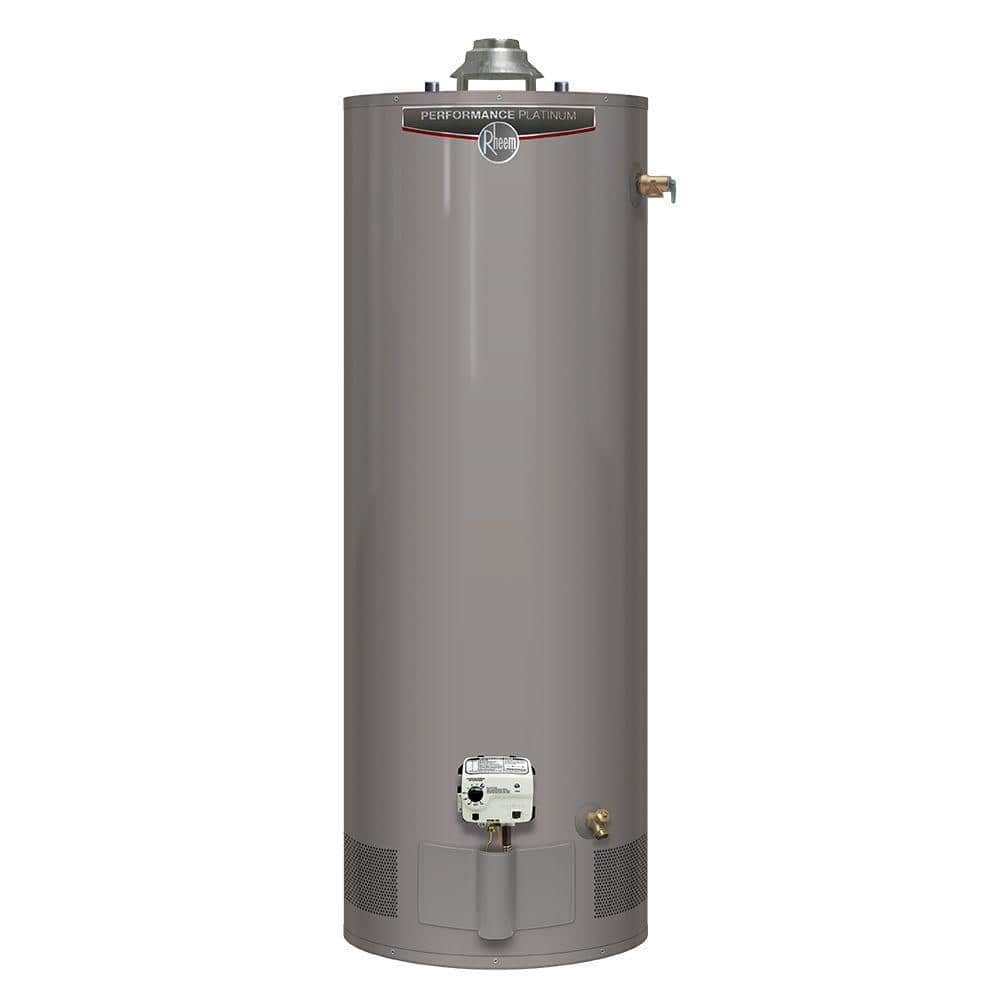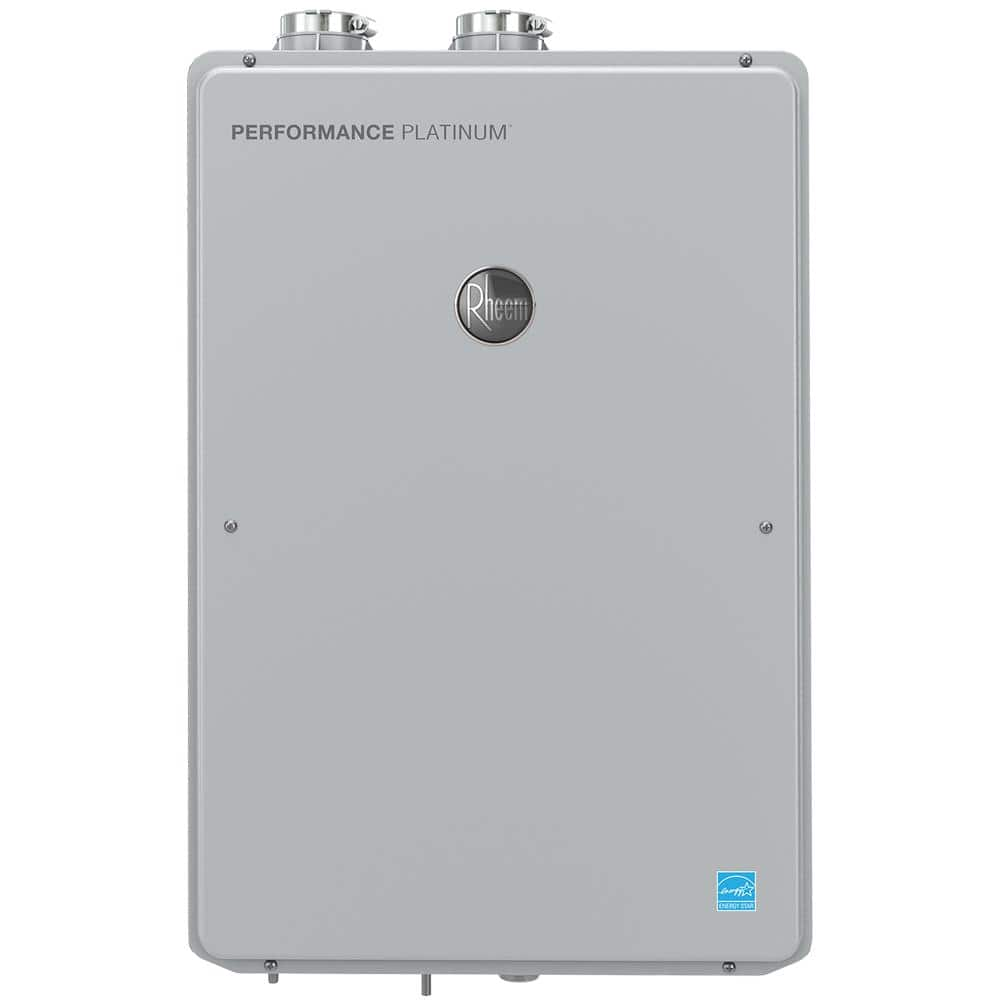Rheem Performance Platinum 50 Gal. Tall 12 Year 40,000 BTU Natural Gas Tank Water Heater
Maintenance Free burner system – no filter to clean. CA, UT Residents – see disclaimer below before purchasing. Provides ample hot water for households with 3-5 people.
The Rheem Performance Platinum 50 Gal. Natural Gas Tall Water Heater comes with a 40,000 BTU/hour environmentally friendly low NOx burner that provides ample hot water for households with 3 to 5 people. The push button ignition system ensures safe and easy startup. Its maintenance free combustion air intake system means there are no filters to clean and replace. A premium grade anode rod provides long lasting tank protection. Factory installed temperature and pressure relief valve and 3/4 in. water connections are included with the water heater for easy installation.
- California and Utah Residents (Utah Effective 7/1/18): This Water Heater Does Not Meet Ultra LOW NOX (ULN) emissions requirements. Regulations prohibit the sale, shipment or installation of this water heater in any air quality district that requires ULN water heaters, please refer to the maps below to confirm if your home is in a district that requires ULN emission water heaters, and if so please select an approved ULN model
- Delivers 77 Gal. of hot water in the first hour
- 12-year limited warranty on tank and parts for your convenience
- 3-year in home labor warranty for peace of mind
- 0.64 uniform energy factor indicates an energy efficient water heater
- Maintenance free – no filter to clean or replace
- Push button ignition system simplifies the startup process
- Designed for easy replacement of your existing water heater
- Rated for installations up to 8,500 ft.
Additional information
| Product Depth x Height x Width (in.) | 21.5 x 59.25 x 21.5 |
|---|---|
| Tank Valve Size (in.) | 0.75 |
| Water Connection Size (in.) | 3/4 |
| Certifications and Listings | CSA Certified,FVIR Certified |
| Labor Warranty | 3 Year |
| Part Warranty | 12 Year |



by Mike
My last hot water heater was a 40 gallon gas Rheem heater. After 10 years or more it began to leak. Hopefully this one will last another 10 plus years. So far no complaints.
by Ajay
High quality and easy to install.
by John
It’s been a month since I installed my water heater and so far it’s working great! The electronic pilot is cool feature even if power goes out. This water heater was a little taller than my old 40 gal unit so the vent had to be redone and made shorter. The hot water temperature setting should be set at Hot/Normal setting instead of “A” since “A” is too hot and will decrease the life of the water heater. The Rheem Performance Platinum is more expensive but with the 12 year warranty, it’s a little piece of mind that you don’t have to worry about water heater problems for awhile.
by Rick
Unit installs east with proper fittings. Warranty is the same as everyone else.